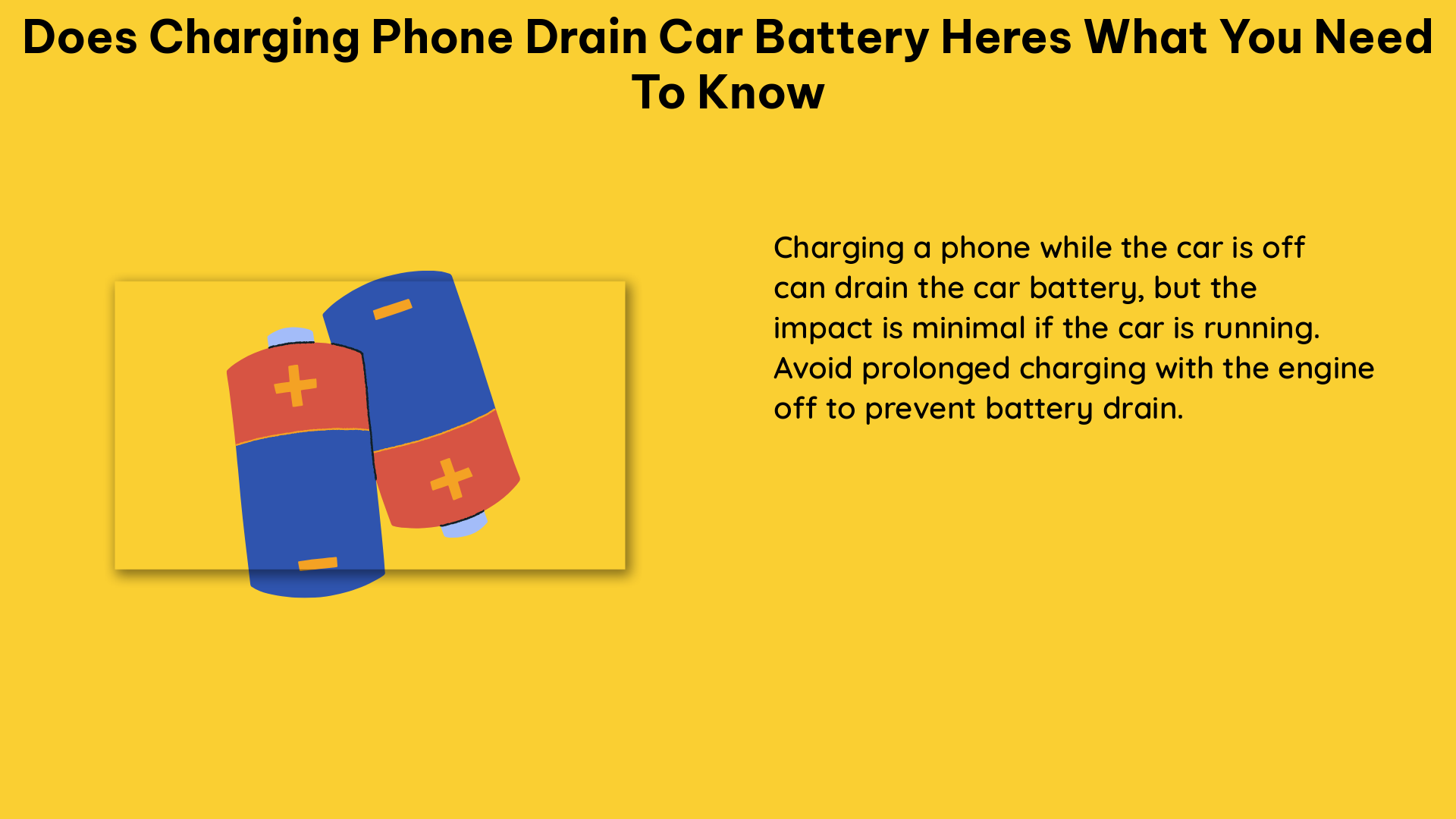Charging a phone in your car is a common practice, but many car owners wonder if it can drain the car’s battery. The answer is not as straightforward as it may seem, as it depends on various factors. In this comprehensive guide, we’ll explore the technical details, potential risks, and best practices to ensure your car’s battery remains healthy while charging your phone.
Understanding Car Battery Capacity and Phone Charging Power Consumption
A typical car battery has a capacity ranging from 40 to 100 amp-hours (Ah), which translates to 480 to 1200 watt-hours (Wh) of energy. On the other hand, a smartphone typically requires around 5 watts of power to charge.
To calculate the time it would take to drain a car battery by continuously charging a phone, we can use the following formula:
Car Battery Capacity (Wh) / Phone Charging Power Consumption (W) = Time to Drain Battery (hours)
Assuming a car battery with a capacity of 60 Ah (720 Wh) and a phone charger consuming 5 watts, it would take approximately 144 hours (6 days) of continuous phone charging to completely drain the car battery.
However, it’s important to note that this calculation assumes the car battery is not providing power to any other accessories or systems in the vehicle, which is rarely the case in real-world scenarios.
Factors Affecting Phone Charging and Car Battery Drain

-
Charging Patterns: Most people charge their phones intermittently, for a few hours at a time, rather than continuously. This intermittent charging significantly reduces the amount of energy drawn from the car battery.
-
Car Electrical System Management: Modern cars have sophisticated electrical systems that manage power distribution and battery charging. These systems are designed to prevent the car battery from being drained completely, even when powering accessories or charging devices.
-
Battery Health: The condition of the car battery also plays a role. A well-maintained, healthy battery will be less susceptible to drainage from phone charging compared to an older, weaker battery.
-
Additional Power Consumption: If the car is running other accessories, such as the radio, lights, or climate control, the overall power consumption will be higher, potentially accelerating the battery drain.
-
Charging Speed: Fast charging technologies, such as Quick Charge or USB-C Power Delivery, can draw more power from the car battery compared to standard charging methods.
Best Practices for Charging Phones in Cars
To minimize the risk of draining your car’s battery while charging your phone, consider the following best practices:
-
Limit Charging Time: Avoid leaving your phone plugged in for extended periods when the car is not running. Charge your phone only when necessary and unplug it once it’s fully charged.
-
Use a Portable Charger: Consider investing in a high-capacity portable power bank or battery pack to charge your phone instead of relying solely on the car’s electrical system.
-
Monitor Battery Levels: Keep an eye on your car’s battery level, especially if you’re using multiple accessories or charging your phone for an extended period. If the battery level starts to drop significantly, stop charging your phone and start the car to allow the alternator to recharge the battery.
-
Maintain Car Battery Health: Regularly maintain your car’s battery by having it tested and replaced when necessary. A healthy, well-maintained battery will be less susceptible to drainage from phone charging.
-
Avoid Charging During Idle: If possible, avoid charging your phone while the car is idling, as the alternator may not be able to keep up with the power draw, leading to battery drain.
Conclusion
While it is technically possible for charging a phone to drain a car battery, the likelihood of this happening is relatively low in most real-world scenarios. By understanding the power consumption of phone charging, the capacity of car batteries, and following best practices, you can safely charge your phone in your car without worrying about draining the battery.
Remember, every car and battery is different, so it’s always a good idea to monitor your car’s battery level and adjust your charging habits accordingly. By being mindful of your power consumption, you can ensure your car’s battery remains healthy and ready to start your vehicle whenever you need it.
References:
- Does fast charging affect battery life? 6 phone battery questions, answered
- Car Battery Capacity
- How Long Can You Charge a Phone in a Car Before Draining the Battery?
- How to Charge Your Phone in a Car Without Draining the Battery

The lambdageeks.com Core SME Team is a group of experienced subject matter experts from diverse scientific and technical fields including Physics, Chemistry, Technology,Electronics & Electrical Engineering, Automotive, Mechanical Engineering. Our team collaborates to create high-quality, well-researched articles on a wide range of science and technology topics for the lambdageeks.com website.
All Our Senior SME are having more than 7 Years of experience in the respective fields . They are either Working Industry Professionals or assocaited With different Universities. Refer Our Authors Page to get to know About our Core SMEs.